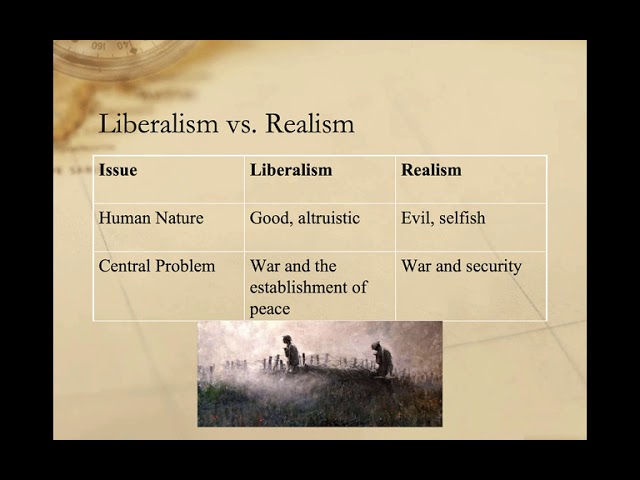Q.2 What are the essential differences between the liberal internationalist and realist theories? In your opinion, why is realism the most dominant theory in the discipline of International Relations? 2017

Liberal internationalism and realism are two prominent theories in the field of International Relations that differ in their views on the nature of the international system and how states interact with each other. Here are some essential differences between the two theories:
- Nature of International System: Realists view the international system as anarchic, where there is no central authority to govern states’ behavior. In contrast, liberal internationalists view the international system as characterized by interdependence and cooperation, where states can work together to achieve common goals.
- Role of States: Realists believe that states are the most important actors in international relations, and their primary objective is to ensure their own survival and security. On the other hand, liberal internationalists believe that states can and should work together to promote democracy, human rights, and economic prosperity.
- Use of Force: Realists believe that the use of force is a necessary tool in international relations, especially in cases where a state’s survival is at stake. In contrast, liberal internationalists prioritize diplomacy and peaceful conflict resolution over the use of force.
- International Organizations: Liberal internationalists emphasize the importance of international organizations in facilitating cooperation and resolving conflicts between states. Realists, on the other hand, are skeptical of the effectiveness of international organizations and view them as tools for powerful states to impose their will on weaker ones.
Regarding the dominance of realism in International Relations, there are several reasons why this theory has been more influential than others:
- Empirical Basis: Realism has a strong empirical basis, with many historical examples of power struggles, wars, and alliances between states that support its key assumptions.
- Focus on Security: Realism’s emphasis on security and the use of force is relevant to many contemporary issues, such as terrorism, nuclear proliferation, and great power competition.
- Policy Relevance: Realism provides policymakers with a clear and straightforward framework for analyzing international events and making decisions that prioritize national security and self-interest.
- Criticism of Other Theories: Realism has been critical of other competing theories, such as liberalism and constructivism, which has helped to solidify its dominance in the field.
In conclusion, while realism and liberal internationalism differ in their views on the nature of the international system and the role of states, realism has become the dominant theory in International Relations due to its strong empirical basis, focus on security, policy relevance, and criticism of other competing theories.